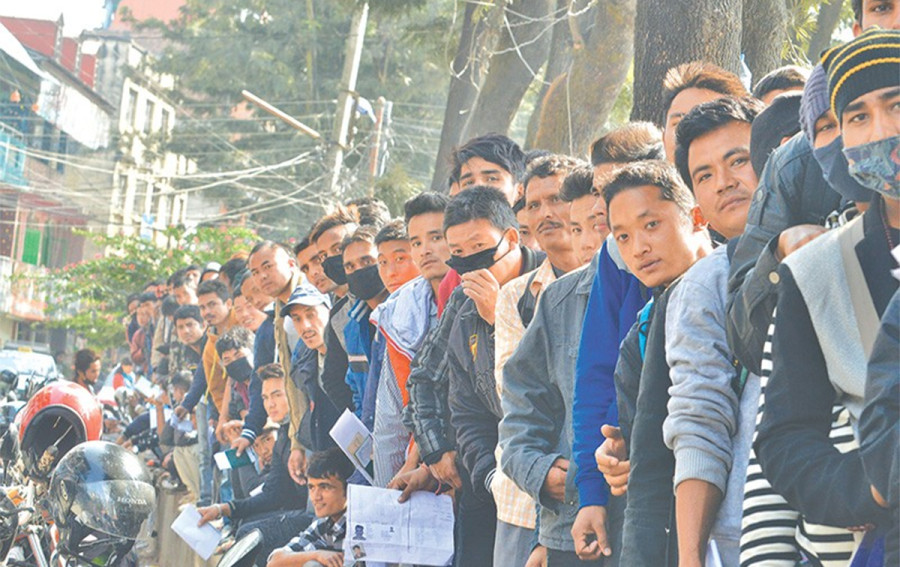Valley
Labour demand from Jordan halted for months
The number of Nepali labourers in Jordan, a West Asian country, has declined dramatically in the past few months
Chandan Kumar Mandal
The number of Nepali labourers in Jordan, a West Asian country, has declined dramatically in the past few months. This is because the Nepali Embassy in Cairo, Egypt, has stopped approving demand letters.
An official at the Ministry of Labour, Employment and Social Security told the Post that the Nepali Embassy in Cairo, which also oversees Jordan, stopped verifying the letters of demand submitted by Jordanian employers, interested to hire Nepali workers, saying that the remuneration they were providing was too low for Nepali workers.
“There are no other issues other than the salary. The embassy has said the salary is not enough for our workers,” said the official on condition of anonymity because he was not allowed to speak with the media.
The verification of the letters has stopped since April-May last year.
The halt came into effect after the Nepal government formulated a new directive ‘Foreign Employment Related Demand Letter Enquiry Directive 2018’, which made it mandatory for recruiting agencies and foreign companies seeking Nepali migrant workers to get their work demand letters approved by the Nepali foreign missions based in the destination countries.
Nepal and Jordan had signed a bilateral labour agreement on October 18, 2017, which formally allowed Nepali workers to enter the Arabian Kingdom.
Nepali workers had taken up jobs as domestic help and as general workers in the country’s apparel industry. Jordon was seen as an alternative and safe labour destination to diversify the labour market for Nepali workers, which had so far been heavily concentrated in other Gulf countries like Saudi Arabia, Qatar, and the United Arab of Emirates, and other countries like Malaysia.
As per the labour agreement, a Nepali worker working as housemaid should get a minimum basic salary of USD 300. The salary of a garment worker, which is more regularised with fixed working hours and provides more freedom to workers, however, is less.
For Nepali women, Jordan, where over 5,000 Nepalis are working, is a preferred country for jobs in the garment sector. The minimum basic salary for a migrant worker at a garment factory is $175 or JD125, excluding over-time pay. The monthly salary of a worker can reach up to USD270, including the payment coming from over-time work, as guaranteed in the labour agreement. A garment worker also gets an additional JOD95 or USD133 for other utilities like food, water supply, electricity, among others. Accommodation is provided by the employer.
Mahesh Prasad Dahal, secretary with the labour ministry, told the Post that the ministry would raise the salary issue during the review meeting of the existing agreement.
“The labour agreement is in place with Jordan. We need to review it timely. There will be a joint technical committee meeting between officials from both countries in the next few months.
We will discuss the salary issue, including other issues related to workers’ safety and rights,” the secretary said.
The Jordanian government in 2018 had also decided to raise the minimum basic wage for Jordanians from JD 190 to JD220.
Jordan Garment, Accessories & Textiles Exporters’ Association, the Association of Owners of Factories, Workshops and Garments and the General Trade Union of Workers in Textile, Garment & Clothing have agreed to address the pay discrimination between local workers and migrant workers.
In 2017-18, a total 1,944 Nepalis left for Jordan as migrant workers, according to the statistics of the Department of Foreign Employment.




 8.43°C Kathmandu
8.43°C Kathmandu














